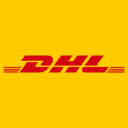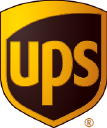How I Started A $110,000/Month Business With My Father Selling Green Tech Products
Hello! Who are you and what business did you start?
My name is Borja. I am a 36-year-old father-of-three from Spain that runs a retail business called tutiendaenergetica.es (it translates as “yourenergyshop” in Spanish). We have a shop in Pamplona - yes, that’s where the Running of the Bulls happens! - and an ecommerce site aimed at the Spanish market. We sell - mainly to end users - 2 types of “green tech” products, as I call them:
- Solar PV components , such as solar modules, inverters, charge controllers, batteries… We also provide ad-hoc technical proposals - based on each client’s energy consumption patterns - and professional installation services across Spain.
- Electric Mobility vehicles , such as e-scooters, electric bikes, e-kits, motorcycles, mobility scooters, e-skateboards…. We have our brand, Fotona Mobility, that has recently started offering for distribution to other retail businesses on a B2B basis. Also, we have specialized in manufacturing/renewing lithium-ion batteries which allows us to offer our electric vehicles with different range options depending on the user’s needs (and pocket!). Finally, but not...
Sorry, you need to login and/or become a member to view the rest of this content.
More Business Ideas Like This































